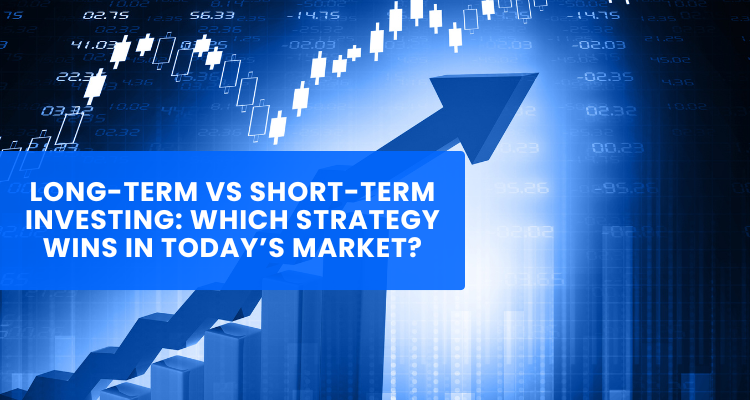Investing is no longer a one-size-fits-all approach. Whether you’re a seasoned investor or someone just starting to explore the financial markets, one question often comes up: should I focus on long-term investing or short-term investing? Each strategy has its strengths, risks, and suitability depending on your financial goals, risk appetite, and the current market scenario. Let’s break it down.
Understanding Long-Term Investing
Long-term investing involves buying assets and holding them for an extended period, typically five years or more. The idea is to ride out market volatility, allowing your investments to grow steadily over time.
Key Advantages:
- Compounding Growth: Reinvested dividends and interest generate exponential growth over time.
- Reduced Stress: Long-term investors aren’t affected by daily market fluctuations.
- Tax Benefits: In many countries, long-term capital gains are taxed at lower rates than short-term gains.
- Historical Performance: Markets tend to grow over the long term, despite temporary downturns.
Risks:
- Requires patience and discipline.
- Long-term trends may not always align with your personal financial needs.
- Some sectors can underperform for decades, making timing crucial.
Exploring Short-Term Investing
Short-term investing typically spans days, weeks, or months, aiming to capitalize on market movements and trends. This strategy includes day trading, swing trading, and momentum investing.
Key Advantages:
- Quick Returns: Potential for fast gains if market timing is right.
- Flexibility: Easier to exit positions if market conditions change.
- Liquidity: Short-term assets can often be converted to cash faster.
Risks:
- Higher transaction costs and taxes on gains.
- Emotional stress due to rapid market fluctuations.
- Requires constant monitoring, research, and a deep understanding of market trends.
What the Current Market Looks Like
Today’s market is a mix of volatility and opportunity. Factors such as inflation, geopolitical tensions, and technological disruptions create both risks and openings for investors. In such a scenario:
- Long-term investors benefit from holding diversified portfolios in index funds, blue-chip stocks, or stable mutual funds. Historically, these assets have recovered from downturns and delivered consistent returns.
- Short-term investors can take advantage of market swings, but the risks are higher, especially with unpredictable global events impacting markets instantly.
Choosing the Right Strategy for You
The truth is, there’s no universal “winner.” Your choice should depend on:
- Financial Goals: Are you saving for retirement (long-term) or a vacation/home purchase in the next year (short-term)?
- Risk Tolerance: Can you handle market dips without panic-selling?
- Time Commitment: Short-term investing demands daily attention, whereas long-term investing is more hands-off.
- Market Knowledge: A strong understanding of trends, news, and economic indicators is crucial for short-term strategies.
Many successful investors combine both approaches—a balanced portfolio can leverage long-term growth while seizing short-term opportunities.
FAQs on Long-Term vs Short-Term Investing
1. Is long-term investing always better than short-term investing?
Not always. Long-term investing is more stable, but short-term strategies can yield quick gains. The “better” strategy depends on your risk tolerance and financial goals.
2. Can beginners try short-term investing?
Yes, but it’s riskier. Beginners should start with long-term investments while slowly learning short-term trading with small amounts.
3. Which is riskier: long-term or short-term investing?
Short-term investing is riskier because markets are unpredictable in the short run. Long-term strategies typically smooth out volatility.
4. What are the best long-term investment options today?
Index funds, mutual funds, ETFs, government bonds, and blue-chip stocks are reliable long-term options.
5. How do I balance both strategies?
You can allocate 80% of your funds to long-term holdings and use 20% for short-term opportunities. This way, you build wealth steadily while experimenting with market moves.
Final Thoughts
While both strategies have their merits, long-term investing often provides a more stable and predictable path to wealth creation. Short-term investing can deliver quick wins but comes with higher risk and emotional stress. Assess your goals, resources, and comfort with risk before committing to either approach.
Ready to Start Your Investment Journey?
Whether you’re looking to grow wealth steadily or explore short-term opportunities, the key is to start now. Learn the nuances of investing, make informed choices, and secure your financial future.
Explore expert guidance, tips, and tools at finskool21 and take your first step toward smarter investing today!



